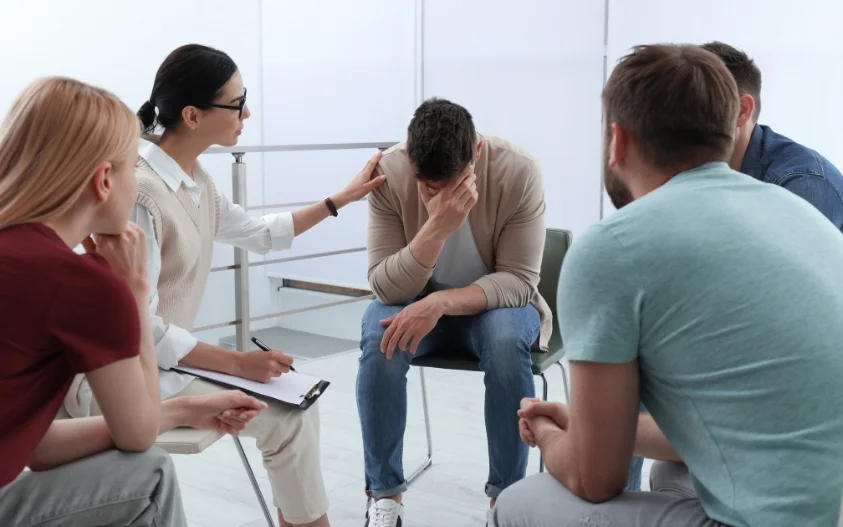24/7 Helpline:
(866) 899-221924/7 Helpline:
(866) 899-2219
Learn more about PTSD Treatment centers in Mecklenburg County
PTSD Treatment in Other Counties

Other Insurance Options

Coventry Health Care

Horizon Healthcare Service

Private insurance

Holman Group

Excellus

Lucent

Medical Mutual of Ohio

UMR

MHNNet Behavioral Health

Cigna

Evernorth

Ambetter

Health Choice

BlueShield

Magellan Health

Anthem

Carleon

GEHA

Humana

CareSource

Carolinas HealthCare System Behavioral Health
Carolinas HealthCare System Behavioral Health offers a variety of mental health and substances abuse...

Hammett Counseling And Consulting
Hammett Counseling And Consulting is a public rehab located in Cornelius, North Carolina. Hammett Co...



































































Triple Play Farm
Triple Play Farm is a private rehab located in Davidson, North Carolina. Triple Play Farm specialize...

Crossroads Reentry Ministries – CRM
Crossroads Reentry Ministries - CRM is a Non-Profit rehab center located in Huntersville, NC. Crossr...































